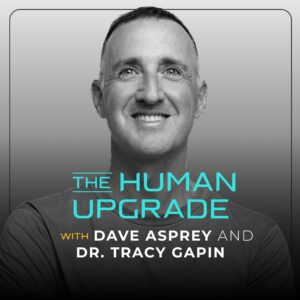
I’m a urologist. That means that I was specially trained in the management of men’s health issues, including low testosterone, prostate health, and erectile dysfunction. This is my passion.
In my 25+ year career, I have found that among all the men’s health issues I manage, erectile dysfunction is one of the most common complaints that brings men to see me.
It’s the bread and butter of my work.
Unfortunately, there’s a ton of misinformation around both what causes ED and how to treat it. Sometimes, that misinformation cause guys to needlessly suffer and avoid seeking guidance and support.
So I want to take this opportunity to dispel some of the most common erectile dysfunction myths and give you the facts. And then I’ll tell you how to get treatment.
Myth #1. “ED isn’t a real health problem.”
Fact: ED can be a sign of much more significant health problems.
Men tend to think of sexual issues as performance issues and not necessarily true health issues. But problems with sexual function are potentially a sign of much bigger issues.
ED is often the initial symptom of vascular disease. The blood supply to the penis is quite small, so any atherosclerosis, or plaque in your arteries, can quickly affect normal blood flow and thus cause issues with normal erectile function.
Erectile dysfunction can be a sign of underlying diabetes, high blood pressure, or other health problems. So think of ED as a “canary in the coal mine” for other potentially serious health conditions. ED can in fact also be associated with early mortality.
I consider ED to be a wake-up call. It should prompt a full evaluation to identify undetected cardiovascular disease or other health issues that need to be addressed.
Myth #2. Erectile dysfunction only happens in older men
Fact: Erectile dysfunction is more common in older men, but it can happen at any age.
Yes, ED is more commonly associated with older men. But younger men can absolutely experience erectile dysfunction, as well. In fact, about 25% of guys under 40 experience ED.
In younger men, ED tends to be more often related to psychological issues or low testosterone, whereas ED in older men is more commonly associated with underlying medical issues such as cardiovascular disease or diabetes.
Myth #3. ED is a normal part of the aging process, so I shouldn’t worry about it
Fact: No one should “settle” for ED.

While ED may be common, we shouldn’t see it as a “normal” part of aging.
It can be caused by a number of underlying health issues – poor blood flow, hormone imbalance, or nerve damage. But these are issues that can be prevented by prioritizing an optimal lifestyle. It’s a health issue. And it can be treated.
There’s no reason you can’t enjoy an active and satisfying sex life as you age. ED may affect lots of men, but that doesn’t mean we should consider it a normal part of the aging process.
Myth #4. ED means you’re not attracted to your partner
Fact: Some people experience ED even when they are very attracted to their partner.
Erectile dysfunction is complex and can be caused by a number of factors. In addition to medical issues such as peripheral vascular disease and low testosterone, it can also be a result of psychological issues like stress and anxiety. Even lifestyle factors and some medications you’re taking can kill your sex life.
So it’s important to realize that ED is not the same as sexual desire. ED doesn't necessarily cause low libido and vice versa.
Myth #5. ED is caused by tight underwear
Fact: There is no evidence for a connection between your underwear and sexual function.
It’s true that there is a link between tight underwear and infertility. This is because the testicles regulate their temperature by getting closer to, or further from, the body. Tight underwear can keep the testicles to close the body, which can increase their temperatures enough to reduce sperm production.
But infertility is a separate issue from ED. There’s currently no evidence for a link between ED and your underwear.
Myth #6. Any difficulty getting an erection means you have ED
Fact: It’s normal to occasionally have difficulty getting an erection.

There’s a kind of social pressure to be “ready” all the time… but that’s not always how our body works.
Sexuality is complicated and impacted by a lot of factors. Men who are sleep deprived, particularly stressed, or just “not in the mood” may not be able to get an erection on command. That’s actually normal—it doesn’t necessarily mean that they have ED.
ED is diagnosed when a man consistently has difficulty getting or maintaining an erection satisfactory for intercourse.
Myth #7. ED means you have problems in your relationship
Fact: While relationship issues can impact your sexual performance, there are many other potential causes as well.

Most cases of ED have physiologic causes, not psychological ones.
Sure, relationship issues can cause stress, anxiety, which could lead to ED. But relationship issues are usually not the cause of most men’s ED.
Myth #8. ED can’t be fixed
Fact: We have very effective treatment options for ED.
It’s fairly common that men feel like their ED is hopeless and will never get better. The fact is there are many highly effective treatment options available for ED, and almost all cases of ED can be treated. And not just with Viagra!
Myth #9. The only treatment for ED is Viagra or Cialis
Fact: There are many options for treating ED.
Viagra, Cialis, and the other oral medications completely shifted ED treatment by increasing awareness and providing an easily accessible solution. But there are many other treatment options as well. This includes vacuum device, intracavernosal injections, peptide therapy, Pulsewave, PRP (Platelet-rich plasma, or ‘P-shot’), and Testosterone or hormone replacement therapy for men with low testosterone.
It’s also important to realize that lifestyle changes can dramatically improve your sexual function. Focusing on proper nutrition, good sleep quality and duration, exercising, and effectively managing your stress are part of a systems-based approach to health that has been proven to improve erectile function.
Myth #10. ED is too embarrassing to talk about with my doctor
Fact: ED is a very common issue with men today, even in younger men, and you should feel comfortable discussing it with your doctor.
One of the biggest issues with ED and other sexual health issues is that guys don’t like talking about it. It can be awkward. But ED doesn’t mean you’re weak. It doesn’t make you less of a man. It just means you need a little help.
Fact: You can overcome ED
Erectile dysfunction is a real medical condition and it can be serious. If you’re struggling with ED, seek treatment.
But don’t wait for your appointment to make some lifestyle changes that we know help improve erectile function:
- Quit smoking
- Eat a balanced, nutrient-rich diet
- Cut out trans fats, saturated fats, and excessive sugar
- Exercise regularly
- Get enough sleep
If you do those things, you’ll set yourself up for success. If you need help with ED, reach out to me.
Schedule a consultation to discuss ED treatment.
Take the next steps
Download the Blueprint
Schedule a Call
**************************
 In Male 2.0™, Dr. Tracy Gapin has turned everything we once thought we knew about men’s health and performance upside down. The old model of how to be “a man” is broken. A man who works himself to death. Unfortunately, a man who tries to NOT get sick but isn’t really healthy either. And a man who takes a pill for every ill but is never really cured. That was Male 1.0. Now, imagine being THE MAN ─ owning your performance in the bedroom, the weight room, and the boardroom. Living a fully optimized life. Becoming limitless. This is Male 2.0!
In Male 2.0™, Dr. Tracy Gapin has turned everything we once thought we knew about men’s health and performance upside down. The old model of how to be “a man” is broken. A man who works himself to death. Unfortunately, a man who tries to NOT get sick but isn’t really healthy either. And a man who takes a pill for every ill but is never really cured. That was Male 1.0. Now, imagine being THE MAN ─ owning your performance in the bedroom, the weight room, and the boardroom. Living a fully optimized life. Becoming limitless. This is Male 2.0!
Tracy Gapin, MD, FACS is a board-certified Urologist, world renowned Men’s Health & Performance Expert, Author, and Professional Speaker. Using state-of-the-art biometric monitoring, nutrition and lifestyle intervention, Dr. Gapin coaches Fortune 500 executives and evolutionary leaders of business, sports medicine, and high performance. He specializes in cutting-edge precision medicine with an emphasis on epigenetics, providing men with a personalized path to optimizing health & performance. www.GapinInstitute.com
Want more tips to optimize your health? Listen to the latest podcasts. Click HERE
References
Fung, M. M., Bettencourt, R., & Barrett-Connor, E. (2004). Heart disease risk factors predict erectile dysfunction 25 years later: the Rancho Bernardo Study. Journal of the American College of Cardiology, 43(8), 1405-1411.
Shamloul, R., & Ghanem, H. (2013). Erectile dysfunction. The Lancet, 381(9861), 153-165.
Yafi, F. A., Jenkins, L., Albersen, M., Corona, G., Isidori, A. M., Goldfarb, S., … & Hellstrom, W. J. (2016). Erectile dysfunction. Nature Reviews Disease Primers, 2(1), 1-20.
Capogrosso, P. M.D., Colicchia, M. M.D., Ventimiglia, E. M.D., Castagna, G. M.D., Clementi, M.C. M.D., Suardi, N. M.D., Castiglione, F. M.D., Briganti, A. M.D., Cantiello, F. M.D., Damiano, R. M.D., Montorsi, F. M.D., Salonia, A. M.D. (2013). One Patient Out of Four with Newly Diagnosed Erectile Dysfunction Is a Young Man—Worrisome Picture from the Everyday Clinical Practice. The Journal of Sexual Medicine, 10(7), 1833-1841.
Parazzini, F., Marchini, M., Luchini, L., Tozzi, L., Mezzopane, R., Fedele, L. (1995). Tight underpants and trousers and risk of dyspermia. Internaitonal Journal of Andrology, 18(3), 137-140.








